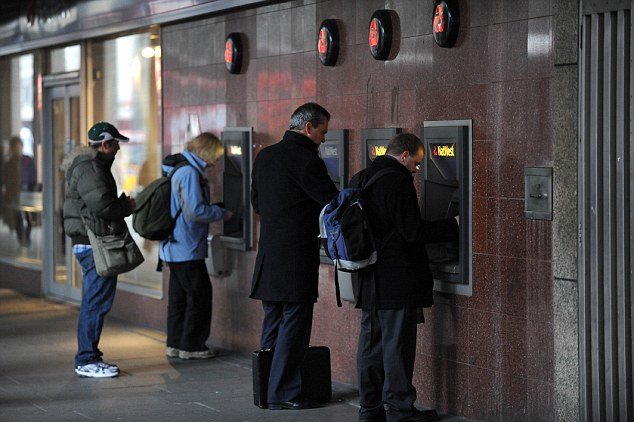Cash deserts are imminent as many branches of banks are being shut down. Warns consumer group. In 2017, 900 bank branches were sealed, and this new year, additional 300 may also follow suit.
The assault in the form of bank branch closures and automated machine deactivation may soon result in insufficient currency notes ‘deserts’ in possession of bank customers throughout the United Kingdom.

The consumer group, which is the main bank on the high street, issued this notification last week. More banks are losing their branches in quick succession. The alert campaign was headed by Lloyds and Royal Bank of Scotland.
At the moment, about 300 financial offices have gotten the shutdown notices slated for this year, which will be a sequel to the sealing of almost 900 banks in 2017.
Some ATMs were discovered to be counterproductive to their operators who get little or no financial gains from running them. As a result, a countless number of these cash machines will be terminated.
This unfavorable development in the financial sector can lead to reviewing of ‘ATM’ charges by their operators on how much those functional banks will have to pay.
Residents on the high street and other affected towns are still shocked at this onslaught, and they are not ‘smiling’ about it at all. The closures and pending closures have deprived them the much-needed banking amenities. They sent series of petitions and outcries to notable media houses for their voices to be heard.

The head of the retail banking unit of Royal Bank of Scotland, Jane Howard, was contacted for questioning in regards to the recent crackdown spearheaded by her bank. Jane was in charge of the operations that saw the execution of the sealing of NatWest and RBS imprints, estimated around 262 branches.
In her response, Jane defended the onslaught by blaming it on the customers who want to start carrying out their transactions via the internet.
In a rebuttal issued by customers who are not pleased, it was insinuated that Royal Bank of Scotland and its contemporaries in the banking industry are only gratifying the greediness of selfish shareholders who are only interested in accruing dividends into their pockets, the banks don’t care about the comfort of their customers; hence compelling people to go for online banking. Unfortunately, online transactions are sometimes unreliable due to poor network reception.
High street and rural residents which consist mainly of small-scale ventures and the elderly citizens are being neglected because these set of people find banking closer to their homes easier. On the other hand, say the embittered customers, these thoughtless banks don’t find that process profitable so they are indirectly rendering the high street useless cash-wise.
In the last 20 years, many concerned journalists and newspapers have been publishing the unfair consequences of bank shutdown in the affected towns. 18 years ago, the year 2000 to be precise, Barclays was reported to have planned on shutting down 176 branches of banks in just a day. Some observers have also suggested mergers among these branches which will be more beneficial to the people rather than total closures, but the authorities argued that such step breeds unhealthy rivalry among banks, hence the idea was discarded.
Sadly, if something is not done to curb this assault soon, these communities will soon experience ‘money deserts.’
Commenting on this issue is a financial observer at Which?, Gareth Shaw, who noted that there is a significant reduction in the number of customers that visit banks daily for physical transactions, yet this cannot invalidate the fact that many people still prefer physical banking in their community branches to ATM plastic cards. .’
He pointed out that businesses which operate on small scale basis are more affected due to the nature of how they record their sales which is more cash-based. Subjecting them to ATM cards alone and internet-driven transactions will be very unfair to them, Gareth said.
Customers who are still finding it hard to come to terms with this new era of banking are lamenting. Duncan Passmore, a Rutland base 58-year-old businessman, is one of them. Duncan, who retired as an international banker but now tutors as a t’ai chi and qigong teacher, complained that NatWest bank has turned against them in Rutland. He said his business fetches him daily cash payment from his clients, so he has to drive down to Stamford, a distance of about 11 miles from his town in Oakham to cash his profits. Unfortunately, his banking predicament is not close to being over as NatWest is planning also to terminate operations in Stamford come May, which will require him to go the extra mile too far towns like Leicester or Peterborough if he wants to get his money.

Passmore explained that he would have heeded NatWest’s advice that he should use Oakham post office outlet but the long line of the queue there is like a snail, it hardly moves.
However, Royal Bank of Scotland and Lloyds are insisting that their decision to close bank branches is primarily based on the patronage of the customers, and the patronage is not productive enough.




